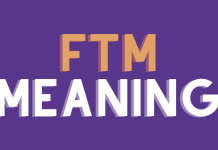By definition, a rotating proxy is: “a proxy server that assigns a new IP address from the proxy pool for every connection.” But here we explain in detail that how does it is working and Where is it applied?
Basically, a rotating 3rd party server allows you to create a 1000 request script that you can launch to any number of online websites to create 1000 new and different IP addresses.

Each proxy in a determined pool is a unique, residential device. The target won’t be able to notice these new connection requests, nor will it be able to track them or monitor the traffic. Rotating proxy services also include the use of incredibly effective back-connect nodes.
These nodes provide access to an abundant source of location-targeted IP pools. You can connect to one single node for any country-targeted IPs to create countless residential connection requests.
It’s usually e-commerce businesses that use rotating proxies to automate every aspect of their business online and make proxy lists redundant.
How does it work?
A rotating proxy is also referred to as IP rotation. Its purpose, even though quite simple, is extremely vital for just one reason – a rotating proxy establishes new connections by assigning new IP addresses to each new connection request.
If you choose a good host and service provider, you will be able to send countless competitive connection requests, and your host’s server will rotate each request every time, assigning a new IP address with each connection.
That way, you can use IP rotation to take site audits or web scraping to a whole new level while ensuring additional layers of protection against all scourges of data center proxies such as subnet bans, and so on.
Some service providers also allow their consumers to use so-called sticky sessions that they can pair with proxy servers. These sessions provide access to the same IP addresses for an agreed window of time.
This is an incredibly useful feature, especially for businesses that are required to multitask often and combine a range of tasks such as retail purchases or managing several social media accounts.
Where is it applied?
Since the whole point of proxy rotation is to trick the website you’re requesting into believing that your IP address is new every time, you’re entirely free to scrape the web while enjoying total anonymity. Because of this, this is mostly applied to web scraping for several reasons:
- A pool of proxies is an excellent tool that allows any internet user to crawl websites reliably, with minimal chances of getting your crawler blocked or banned.
- Whether you’re making a request from a mobile IP or any geo-restricted region, proxy rotation helps you unlock that content for any given device. In case your goal is to scrape product data from online retailers, this feature can be extremely useful.
- In case you need to create a large number of requests to some target, a proxy pool is the best way as you can achieve your goal without getting banned.
- Certain websites impose blanket IP bans that you can bypass by using IP rotation.
- Proxy rotation is also an excellent way to create as many competitive sessions as needed for different websites.
If you’re wondering what your proxy options are, there are three main types of IPs:
- Datacenter IPs
- Residential IPs
- Mobile IPs
Each type has its own pros and cons, so consider all this data when making a selection. Also, there are dedicated, shared, and public proxies to consider, as well.
Who uses rotating proxies?
Anyone can use it, just an ordinary internet user or a company, it doesn’t matter. Anyone with a need for web scraping can use rotating proxies as this can turn to be a critical driving factor of their success.
On the other hand, if you’re looking at a web scraping project, there’s no better way to complete it successfully than to use rotating 3rd party servers. The truth is that you can’t properly scrape any website without using proxies.
Since they are 3rd party servers in charge of rerouting user requests through their own servers while using IP addresses in the process, it’s much simpler and easier to use rotation instead of developing and maintaining web scraping crawlers.
If you decide to use and manage your proxy pool, here some central issues to think about:
- Identify bans
- Retry errors
- User agents
- Control proxies
- Add delays
- Geographical targeting
Conclusion
If your main activity is web scraping, proxy rotation is a handy tool that will gain you access to all areas for scraping while ensuring that your spiders don’t get banned. However, you have a responsibility here. You have to be mindful of the site you scrape.
No matter how sophisticated or inconspicuous your operation may be or what scale it’s on, always make sure you follow the best web scraping practices to avoid damaging or harming the target website.



